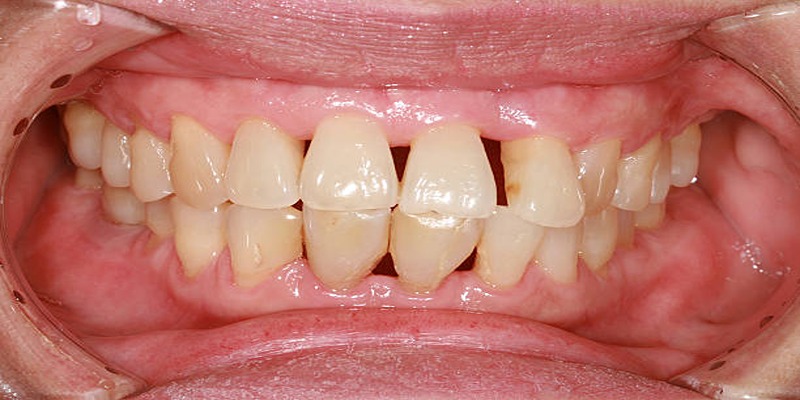What Is Cardiac Arrest–And How Is It Different From a Heart Attack: An Overview
2023-11-04 08:00:00 By Madison Evans
You are wrong if you think heart attack and cardiac arrest are the same. Though most people use these terms interchangeably, there is a huge difference between these two.
Heart attack occurs because of the blockage of blood flow toward the heart, but cardiac arrest is when the heart fails to function properly and stops beating. Calling the heart attack a circulation problem and cardiac arrest an electrical problem would not be wrong.
Heart attack and cardiac arrest are both life-threatening emergencies. Therefore, it is crucial to understand their symptoms, causes, and treatments so that life-saving actions can be taken!
So, let's find the key differences between these two and learn more about cardiac arrest and heart attack in detail here.

How Heart Attack And Cardiac Arrest Are Different?
The blocked blood vessels or arteries that transport the blood to the heart cause heart attack, which causes death of heart cells, oxygen shortage, and chest pain. But, the heart will continue to beat. On the other side, cardiac arrest differs as the heart stops beating. In many cases, the heart cancer causes the cardiac cancer.
In cardiac arrest, the heart stops pumping; consequently, the brain and other organs do not get enough oxygen. It can be caused by anything that stops the heartbeat. Heart attacks can cause cardiac arrest, but not all types are caused by heart attacks.

What Is A Heart Attack?
The heart is a muscular organ, and all muscles require oxygen-rich blood. The heart gets the blood through coronary arteries, and the blockage causes the heart attack. The blood clot is the major cause of blockage of these arteries. If this is not treated, it may significantly damage the different heart tissues.
Heart attack symptoms start appearing slowly and can last a few hours to weeks. Though the heart continues to beat, the heart cannot get the needed amount of oxygen due to the blockage.
Symptoms
The symptoms of heart attack include:
Chest pain: the patients usually feel the tightness in the center of the chest
- Coughing 'anxiety
- Weakness
- Wheezing
- Spreading of chest pain to other body parts, including the jaw, arms, or neck
- Shortness of breath
- Feeling sick
- Sweating
- Palpitations
- Light dizziness
- Anxiety
Causes
There are various potential causes of heart attack, including the following:
- Drowning
- Ventricular fibrillation
- Coronary heart disease
- Ventricular tachycardia
- Pacemaker failure
- Changes in the heart structure
- Choking
- Hypothermia
- Drug abuse
- Electrocution
- Respiratory arrest
Diagnosis
Heart attack can be diagnosed via physical examination by the doctors. Besides that, an electrocardiogram can also be used to check the heart's electrical activity. Besides that, the blood test can help determine the signs of heart attack and other damages.
Treatment
The treatment options depend on different factors, including the patient's medical condition, the heart attack's seriousness, and, most importantly, the patient's ability to withstand surgeries. So, depending on these factors, the doctor can suggest different treatments, including:
- Angioplasty
- A stent
- Heart valve surgery
- Insertion of pacemaker
- Heart transplant
- Bypass surgery
In addition to these, the doctors can also suggest different medications, including painkillers, nitroglycerin, and beta-blockers. All of these medicines will help in recovery and prevent the heart attack.
What Is Cardiac Arrest?
Cardiac arrest is different from heart attack. In this condition, the heart stops beating. In many cases, patients experience cardiac arrest during any medical emergency. So, as the heart stops beating, the body organs, including the brain, lungs, and other organs, don't get enough oxygen. Remember that cardiac arrest can cause a patient's death within a few minutes.
Symptoms
The following are the symptoms of the cardiac arrest:
- No breathing
- A sudden loss of consciousness
- No pulse
Due to the loss of the pulse during cardiac arrest, the patients may not get enough blood or oxygen, which may cause death. In addition to the signs mentioned above, below are the signs you might witness before the cardiac arrest:
- Nausea
- Dizziness
- Shortness of breath
- Chest pain
- Weakness
- Palpitations
Causes
The clogged arteries cause sudden cardiac arrest. For instance, when cholesterol clogs the arteries, it reduces the blood flow and causes cardiac arrest.
Diagnosis
The heart stops beating in cardiac arrest, which is undoubtedly fatal. If you are lucky enough that the doctor has restarted the heart, which can pump blood without restriction, different diagnostic tests can be performed to determine how damaged your heart is. The tests include chest X-rays, echocardiogram, and blood tests.
Treatment
The treatment of cardiac arrest starts with CPR, which helps to restart the heart. After the recovery, the doctor can suggest different medications per the patient's condition to lower the risk of this happening again. The treatments for cardiac arrest include:
- Surgery
- Medication
- Try to live a healthy and active life
Conclusion:
Many people used to ask if cardiac arrest and a heart attack are the same. Well, the answer is a big no.
As both health emergencies are related to heart health, it is a general misunderstanding that they are the same. Both have different causes and symptoms; therefore, both need to be treated differently!
The cardiac arrest is sudden, where the heart stops, and you can't even hear the pulse. An error in the electrical system of the heart usually causes it. While in a heart attack, the patient feels pain and shortness of breath and may faint. The blockage of blood flow causes a heart attack.








